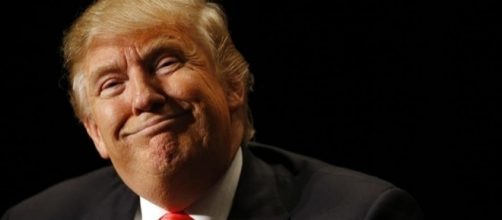Like many media outlets, The Washington Post bought into the idea that President Trump's "deal making" skills were an easy enough sell to get the bill that Republicans wanted to replace the affordable care act (ACA) with -- the American Health Care Act -- passed in the house by their Thursday deadline. And just like many other media outlets, the headlines described the delay due to the lack of votes as "embarrassing" or a complete failure of President Trump's negotiating skills. They also took up a lot of "real estate" to point out that Republicans had been persistent with saying that they would repeal the ACA as soon as they got into power.
But by Friday, the GOP "folded" just as quickly under the weight of that responsibility, as if they hadn't been pushing to defeat the ACA for the better part of a decade.
The Washington Posts article titled: "'The closer'? The inside story of how Trump tried -- and failed -- to make a deal on health care" referred to Trump's view writing that the President asked himself if the Republican's American Health Care Act was a good deal after all. But there's every reason to think this isn't true and that repealing the ACA was too complicated for him to absorb and that he tried to convince everyone otherwise.
Vague and exaggerated rhetoric
The Post quotes him saying, "We were a little bit shy -- very little, but it was still a little bit shy, so we pulled it," which is a perfect example of the kind of vague responses that offer no specifics.
For him to give some indication he or the GOP has some vulnerability of shyness is a hard sell as he's always been reluctant to reveal any vulnerability much less ever apologize for being wrong. The same media outlet assumed that because he wrote "The Art of the Deal," that his recent deal-making skills for the new bill were being tested by saying that "it was never supposed to be this hard," when again, there's little indication that he had anything to do with trying to pass the repeal bill.
Because Trump has never shown Americans that he knew anything about health care or what the Affordable Care Act actually entails. The only thing he's done is given vague displays of how "great" a replacement would be or how everyone would get "the best" coverage, sealed with his "believe me" promise and saying that the ACA is a "complete disaster." His followers would only do what he said which was to believe him.
To add, he admits to not working with Democrats who spent an entire year with President Obama with little to no Republican support -- nothing but obstruction -- to pass the ACA in 2010. On Friday, Republican House Speaker Paul Ryan finally said what ACA supporters and Democrats had been saying for the last seven years that, "Obamacare is the law of the land."
Creating enemies on the left
But President Trump really might have thought he could repeal without any input from Democrats. Politically, he and the GOP tried by themselves. But the Washington Post also pointed out that he also didn't pressure his own Republicans enough. Many of those who are referred to as hardliners who want to kill the ACA were the ones who essentially didn't vote for the new replacement bill because to them, the new bill simply wasn't good enough.
As the Post states: "He did not speak fluently about (the) bill's details and focused his pitch in purely transactional terms," but it then goes further to presume the following: "And he failed to appreciate the important of replacing Obamacare to the Republican base, for the president, it was an obstacle to move past to get to taxes, trade and the rest of his agenda." With a divided Congress, will any of that be possible? During Paul Ryan's press conference which took place before President Trump's statements, he said that as the Affordable Care Act "gets worse" that the "architects of Obamacare" (meaning Democrats) will see how "bad" the ACA is. President Trump continued down the same road he always does and blamed Democrats for the GOP failure.

